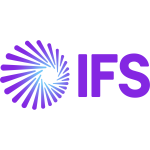We are mainly implementing it for finance, sales, and purchasing.
The most valuable feature is probably the full integration with the finance system. Everything I do automatically creates final or accounting documents, and the capability to make reports on different axes or the latest access is very useful.
The process for the auto administration of the system needs improvement. When I implement a new system, there's a lot to do on the technical side to make it work correctly.
There are many checks on another SAP application server, and some implementations need a lot of recommendations. Activating the Fiori access is improved, however, it should be easier to activate a new process.
Today, I have to find the right role, activate all the services, hope everything is correctly activated, and test it. Sometimes, it's a bit complicated to activate new features.
Additionally, maybe the customization of the screens should allow users to add or change the layout easily. Also, there are a lot of business functions available but not activated by default. I never activate additional business functions since I am unaware they exist, so I might propose or ask to activate some of the exclusions.
Maybe the performance of the SAP interface could be improved. When using the interface, it's not as good as the SAP GUI, for example, which is not the same type of access, but they try to sell something that should be very reactive. In fact, every time I connect, it's very slow.
I have used the solution for eight years.
It's as stable as the previous version of SAP ERP. The only thing that might need reviewing is when the system has no more space for the transaction load. The SAP HANA system is not very easy to unlock, and it's something strange as, compared to other databases, when transaction logs are full, you stop the system, run the transaction log backups, and then restart.
When it's full in HANA, I cannot do it that way. I must make some space to let the system process the finance transaction log because it needs some additional space for the transaction logs' backup. That's not very convenient.
I am not dealing with very big customers. The biggest customer I have is mainly in the retail industry, with about 30,000 sales tickets sent back to SAP every morning. That's when the system works the most. Otherwise, I don't see any performance problems.
I sometimes open tickets to SAP. However, I usually find many answers in the SAP notes, which makes that part okay.
There's a technical setup during implementation.
In projects, we usually use around eight people.
There is an ROI, otherwise I would not buy it. However, something annoying is the huge difference between the public price and the final price for customers. It makes a good prediction for the customer, however, there's a lot of commercial communication. Speaking about product pricing, it starts to be very expensive. There is a lot of reduction when I start discussions with my customers.
Something could be improved in pricing. There's a lot of difference between casual users and expert users. There should be some categories to make pricing simpler, such as limited users and expert users as it was before. Trying to figure out precisely what they should execute according to the license is not easy.
On the cloud side, they've changed the license price. It's not easy to have a clear understanding of the price and the value, especially if I talk about the business transaction platform.
The BTP platform has many services, and I don't know which ones could be used or needed according to different scenarios I want to deploy. That's not very easy to understand now on the price.
The overall product rating is nine out of ten.















